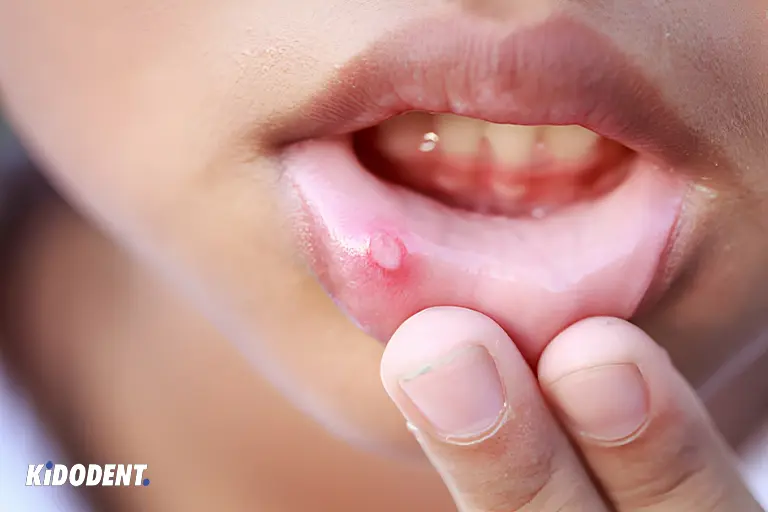If a lump swelling has just popped up inside of your lower lip, it is likely that a mucous cyst has developed. Although lower lip is the common spot in majority of cases, they can form in other oral tissues. Don’t worry and stay calm since mucous cysts are harmless. If don’t go away within a few days, doctors remove these small cysts for you.
What is a mucous cyst?
Mucous cyst, often called mucocele, is a fluid-filled swelling that appears in your mouth and inside of your lip. Mucus cyst is caused due to rupture (bursts) of the salivary glands ducts, which causes the salivary fluid (mucin) to leak into the surrounding tissues in your mouth. The damage or trauma is the main cause of these cysts. They seem like a foreign object in your mouth and inside your lip especially when you are eating or speaking, so it may be annoying.
Mucous cysts occur mainly in your lower lip, but they can form under your tongue, floor of the mouth, inside of your cheek and the palate. Mucoceles may burst and heal after a few days. But if they persist and do not go away, you should visit a dentist or a doctor. They will determine the type of treatment you need and, in most cases, surgical removal to excise the lesion will be performed.
Types of mucous cysts
Mucous cysts have the same characteristics and one common cause. The superficial types will rise up from your skin and some of them will be a little deeper in the inner skin of the mouth. Depending on where these cysts begin to form, there may be some small differences.
For example, if mucus cyst is just under your tongue and floor of your mouth, it is called ranula. Ranula is the name for mucous cyst in this area of your mouth. Ranula can be of the same size similar to your lower lip cyst, but it can enlarge to several centimeters and fill the floor of your mouth. Thus, eating and speaking will be a real issue here.
You see dome-shaped swelling sac that is vary in size, a few millimeters to less than 1 cm. Mucous cysts are filled with fluid that can be clear or bluish in color. Sometimes the mucous cyst can turn even grayish or pink.
What causes mucous cyst?
Trauma to your oral soft tissues is the main cause of mucous cysts. You may have accidentally bitten your inner parts of your lip or other soft parts in your mouth. An injury inside oral cavity can cause damages to the interior part of your cheeks, inside of your lower lip, floor of your mouth and where your salivary gland ducts are.
The main causes of mucous cyst are:
- Bursts of salivary gland ducts
- lip biting
- Biting the inner surface of your cheeks
- Getting an oral pierce like tongue piercing or lip piercing
- An oral or dental procedure
- Sharp teeth or a sharp object that you may have accidently bitten into
How is mucous cyst diagnosed?
First, your doctor or dentist takes necessary images like X-rays, CT scan or MRI imaging. They may even take biopsy of the tissue if unusual symptoms are present. This is to rule out possibilities of tumors such as salivary gland tumor. Then they are able to plan the best and the most effective treatment required for your mucous cyst removal.
Mucous cyst treatment
It may take couple of weeks for most cysts on lip to burst and leave an ulcer that take just some days to heal. You don’t need any treatment for superficial mucous cyst. However, some other mucous cysts are deeper in nature and can persist for longer times, which should be removed. There are no complications and risks in the mucous cyst removal. Your doctor will take the maximum care to decrease the risks of recurring. Even if the cyst appears again later, still removing with surgery is the preferred option.
Depending on the mucous cyst, doctors can treat your cyst through:
- Surgical Excision:
-
it is the best treatment, which doctors remove the cyst entirely to prevent any recurrence. They may need to remove the damaged gland in severe cases.
- Laser therapy:
-
in this procedure, laser beam is used to eliminate the cyst and the damaged tissues
- Freezing:
-
the procedure is called cryotherapy and freezes the affected tissues and cystic lesion.
If your mucous cyst is the superficial one, chances are that they burst and go away on their own. In this case, you need a 2 to 4 days to heal up from the ulceration on the spot. But if the cyst is deeper, you will require surgery to cut the cyst off from your oral soft tissues.
In some rare occasions, your surgeon may remove larger amount of the tissue, for example, the affected part of the gland, to stop the cyst form recurring again. Therefore, if cyst in mouth comes back again, removing with surgery is still the best way to get rid of this cyst. Your doctor or dentist can refer you to a maxillofacial surgeon if the problem needs a difficult surgical intervention.
A final say
See your dentist or doctor if the bump doesn’t resolve on its own. Do not pick at the cyst at home and avoid trying to empty the fluid yourself. Maybe, your bump is not even an oral mucous cyst at all. See a specialist especially when the cyst has become annoying and has caused problems with eating, speaking and interferes with your daily life.
